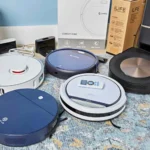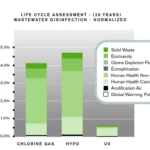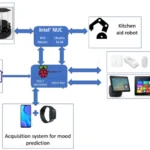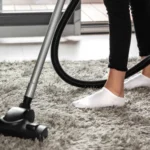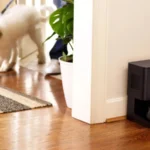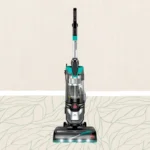Picture this scenario: you just finished vacuuming your house, but you notice a thick layer of dust still lingering in the air. You realize that traditional vacuum cleaners might not be the best solution for your household if you care about the environment. This is where smart vacuum cleaners come in – an innovative technology that can make cleaning easier and more eco-friendly. Today, we’ll explore the environmental benefits of using a smart vacuum cleaner and why choosing one might be a wise decision for your household. Let’s dive into the details.
Reduced Energy Consumption
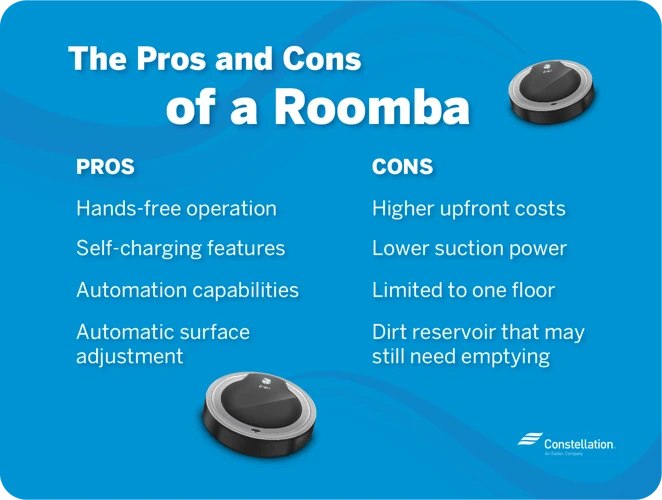
In today’s world, environmental conservation has become paramount. With global warming, climate change, air pollution and other environmental degradation cases, it’s essential to start thinking about green technology that can lower the carbon footprint. When it comes to cleaning, smart vacuum cleaners have gained popularity for various reasons. One of the biggest advantages of smart vacuum cleaners is their reduced energy consumption, compared to conventional vacuum cleaners. Not only does this contribute to the environment in numerous ways, but it’s also economical for homeowners – saving them hundreds of dollars on electricity bills annually. In this section, we’ll highlight how smart vacuum cleaners reduce energy usage through efficient cleaning and automatic charging.
Efficient Cleaning
Smart vacuum cleaners are designed with advanced technology that allows them to clean floors and carpets efficiently. Using sensors, mapping algorithms, and AI, they are capable of avoiding obstacles, creating a map of the cleaning area, and adjusting their movements according to the floor type. This results in a thorough cleaning of your house, even in hard-to-reach places.
Some models are equipped with powerful brushes and suction motors that can pick up dust, dirt, and pet hair from carpets and hardwood floors. The brushes can change direction and height automatically, making sure that every spot is cleaned. This level of efficiency means that you don’t have to spend as much time cleaning and can focus on other activities that matter to you.
The efficiency of smart vacuum cleaners is also tied to their low energy consumption and smart navigation. Unlike traditional vacuum cleaners that require you to move them around, smart vacuums can operate continuously for extended periods without adding to your energy bill. As they follow an optimized cleaning path, they don’t need to spend as much time cleaning areas that are already clean.
If you are looking for efficient cleaning while saving time and energy, a smart vacuum cleaner is the way to go. To learn more about the advantages of smart vacuums, check out our full article on the topic.
Automatic Charging
Automatic Charging: One of the significant advantages of smart vacuum cleaners is that they come with automatic charging capability. This technology is convenient as it allows the vacuum cleaner to return to its charging dock once its battery runs low. It ensures the vacuum cleaner is always ready for cleaning every time you need it. The charging process is usually fast, taking only a few hours to complete.
Below is a table comparing traditional vacuum cleaners with those that have automatic charging technology:
| Traditional Vacuum Cleaners | Smart Vacuum Cleaners with Automatic Charging | |
|---|---|---|
| Charging Method | Manual charging using a power outlet and a charging cable | Automated charging using a charging dock |
| Charging Time | Takes several hours to charge fully | Takes a few hours to charge fully |
| Convenience | Not very convenient, as you have to connect the charging cable to a power outlet manually | Highly convenient since the vacuum cleaner returns to its charging dock automatically when the battery is low |
With the automatic charging feature, you don’t need to worry about constantly monitoring your vacuum cleaner’s battery life. The cleaning process won’t be interrupted, and you’ll have a seamlessly clean home. Having a fully charged vacuum cleaner reduces energy usage, as the cleaners won’t overwork to compensate for an inadequate source of power.
Investing in a smart vacuum cleaner with automatic charging capabilities can significantly improve your cleaning experience, the environment, and your energy bills. They are becoming more and more popular and are available at pocket-friendly prices, providing cleaner solutions to traditional vacuum cleaners. You can learn more about the advantages of smart vacuum cleaners by clicking the following link.
HEPA Filtration Systems
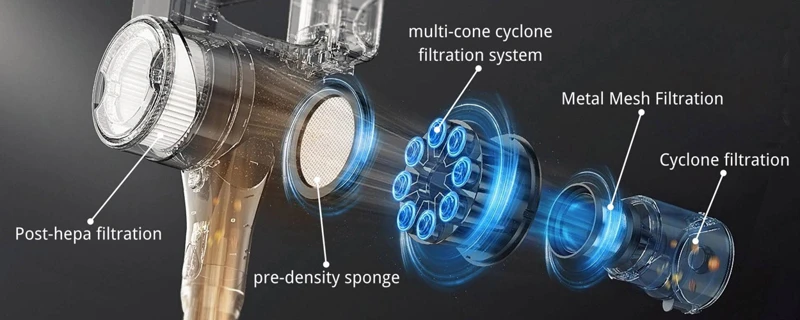
It’s important to not only make sure your floors are clean, but also that the air you’re breathing is free from dust and allergens. That’s where HEPA filtration systems come in. With their advanced technology, these filters trap even the smallest particles, leaving your indoor air cleaner and healthier to breathe. It’s worth noting that some smart vacuum cleaners even utilize HEPA filters to ensure the highest air quality possible. For pet owners or those with allergies, this feature can make a huge difference. To learn more about how smart vacuum cleaners specifically help with pets and allergies, check out our article on smart vacuum cleaners and allergies.
Allergen and Dust Elimination
Using a smart vacuum cleaner has proven to be an efficient way of keeping our homes free of allergens and dust. Allergen and dust elimination is now not only a necessary cleaning process, but a health issue that can affect our respiratory system. The HEPA filtration system used in smart vacuums traps dust particulates and allergens such as pet dander, which are a leading cause of allergies and asthma attacks. The vacuum’s powerful suction collects even the tiniest dust particles that regular vacuum cleaners may miss.
Additionally, the smart vacuum’s ability to clean frequently and thoroughly helps to inhibit dust mite population growth. These microscopic organisms feed on dead skin cells from humans and animals, and multiply rapidly in the home. Frequent vacuum cleaning using a smart vacuum is particularly important for people with respiratory problems like asthma or chronic obstructive pulmonary disease (COPD), as regular cleaning can help reduce the frequency and severity of attacks.
A smart vacuum’s capability to reach even the trickiest corners of our homes, such as under the bed and furniture, ensures that dirt and allergens do not accumulate in hidden spaces. This eliminates the need for thorough manual cleaning, which may stir up dust particles and circulating allergens.
A smart vacuum cleaner’s allergen and dust elimination capabilities go beyond just ensuring a clean home, but contribute to our respiratory health as well. Regular use of this advanced cleaning system can help prevent allergen-related health issues such as asthma attacks, and inhaling air that is free of harmful dust particles.
To learn more about the benefits of smart vacuum cleaners in home security, check out our article on smart vacuums and home security.
Breathable Air Quality
One of the significant benefits of smart vacuum cleaners is that they help in maintaining breathable air quality at home. The use of HEPA filtration technology ensures that the air is free from dust, pet hair, and microorganisms that can trigger allergies or respiratory problems. HEPA stands for High-Efficiency Particulate Air, which means that the filter can trap even the tiniest particles and pollutants from the air.
Using a smart vacuum cleaner with a HEPA filtration system can reduce the concentration of particulate matter and harmful chemicals in the air. This is especially useful for people who suffer from allergies, asthma, or COPD. With the use of smart vacuum cleaners, they can breathe easy, knowing that the air they breathe is free from harmful particles.
Here are some benefits of using smart vacuum cleaners for air quality:
- HEPA Filter: The HEPA filtration system used in smart vacuum cleaners traps 99.97% of particles as small as 0.3 microns. Pet dander, pollen, and dust mites are significant allergens that can cause watery eyes, sneezing, and coughing.
- Airborne Allergen Reduction: Smart vacuum cleaners reduce dust mites, pollen and pet hair from the air, reducing the risk of allergies, especially helpful for pet owners.
- Reduced Asthma Symptoms: HEPA filters can also remove asthma triggers such as pollen, dust mites, and pet dander, thereby alleviating asthma symptoms.
- Improved COPD conditions: By reducing airborne pollutants, smart vacuum cleaners also help those with COPD breathe more comfortably
Using a smart vacuum cleaner ensures that the air in your home is free from pollutants, allergens, and other harmful particles. And the best part? These benefits come with a noise-free operation that ensures a peaceful environment at home.
Using a smart vacuum cleaner with HEPA filtration technology can provide astounding health benefits, such as reducing allergies, asthma, or COPD symptoms. By investing in a smart vacuum cleaner, you can ensure the well-being of your family members and, at the same time, reduce environmental pollution caused by using regular vacuum cleaners that emit dust and dirt into the air.
An internal link with relevant information on smart vacuum cleaners AI cleaning can be found here.
Noise Pollution Reduction
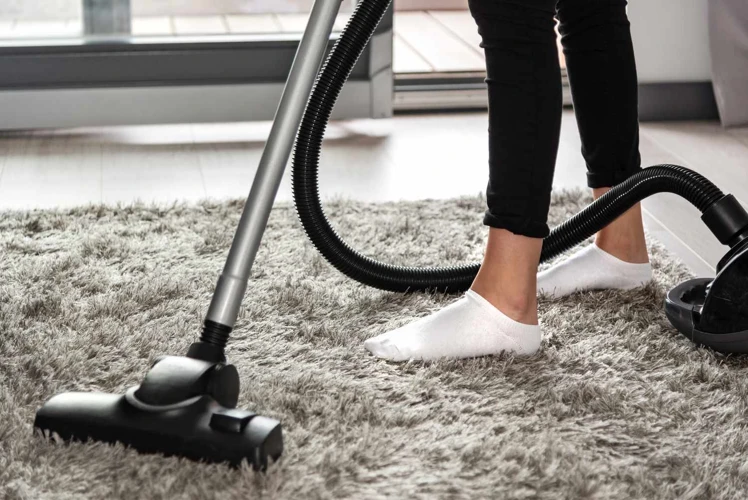
As our society progresses towards modernization and technological advancements, it is essential to consider the consequences of our choices on the environment. With many traditional vacuum cleaners being notorious for their noisy operation, it is no surprise that noise pollution is often a concern. However, a smart vacuum cleaner can tackle this issue with ease, making it an excellent eco-friendly option for preserving peace and quiet. Not only does a smart vacuum cleaner operate quietly, but it also provides top-notch cleaning results, making it a top choice for households and professionals alike. Let’s discover how smart vacuum cleaners can help reduce noise pollution and offer environmental benefits. To learn more about the health benefits of vacuum cleaners, especially for those with asthma or COPD, click here. Alternatively, to read about smart vacuum cleaners’ professional cleaning capabilities, follow this link.
Quiet Operation
One of the key environmental benefits of using a smart vacuum cleaner is its quiet operation. Most traditional vacuum cleaners produce a lot of noise pollution, which can be disturbing for household members, pets, and even neighbors. However, smart vacuum cleaners are designed to run quietly, making them ideal for use in any setting.
Here are some ways in which smart vacuum cleaners are able to operate silently:
- Innovative motor technology: Most traditional vacuum cleaners are equipped with an older, less efficient motor that produces a lot of noise. On the other hand, smart vacuum cleaners use advanced motor technology that produces less noise while still being extremely powerful.
- No belt systems: Traditional vacuum cleaners often use belt systems to transfer power to the brush or motor, which can be noisy, especially when it gets loose or out of alignment. In contrast, smart vacuum cleaners make use of direct-drive motors, which eliminate the need for belts and contribute to a much quieter operation.
- Insulated body: Smart vacuum cleaners are constructed with materials and technologies that help reduce sound production. The body of the cleaner is often insulated with thick foam or rubber gaskets that absorb sound, which leads to a quieter operation.
Aside from being more pleasant for people nearby, quiet vacuum cleaners also help minimize noise pollution in communities. This is especially important for larger households or commercial settings, where multiple vacuum cleaners could contribute to a significant amount of noise.
In addition to the environmental benefits, a smart vacuum cleaner’s quiet operation can also have a positive impact on people’s well-being. Loud noises can cause stress, anxiety, and poor sleep quality, so reducing noise pollution in homes and workplaces can have a calming effect and promote better overall health.
A smart vacuum cleaner’s quiet operation is just one example of how technology can be used to improve environmental and personal well-being. By using advanced motor technology, eliminating belt systems, and incorporating sound insulation, smart vacuum cleaners are able to provide an efficient and silent method of cleaning while contributing to a more peaceful and sustainable environment.
Peaceful Environment
One of the benefits of using a smart vacuum cleaner is the creation of a peaceful environment. Traditional vacuum cleaners are notorious for being loud and disruptive, causing discomfort and preventing people from engaging in other activities while vacuuming.
The mechanism of a smart vacuum cleaner produces less noise, thanks to its powerful yet silent motor. This is ideal for those who value peace and quiet. A quiet vacuum cleaner is perfect for those who don’t want to disrupt their sleeping baby, pets, or the elderly.
Additionally, the noise reduction feature of smart vacuum cleaners creates a more relaxing atmosphere, especially for people working from home. With a quieter environment, people can focus and concentrate better and have a more productive workday.
The absence of noise pollution in the space where you live or work, thanks to the smart vacuum cleaner, can have a long-term positive effect on your mental health. Constant loud noises may cause stress, anxiety, and depression, making it crucial to maintain a peaceful environment.
Having a smart vacuum cleaner in your home or workplace will allow you to enjoy the benefits of peace and quietness while keeping your floors clean. It is an excellent way to improve mental and emotional well-being while maintaining an eco-friendly outlook.
Less Wastage Production
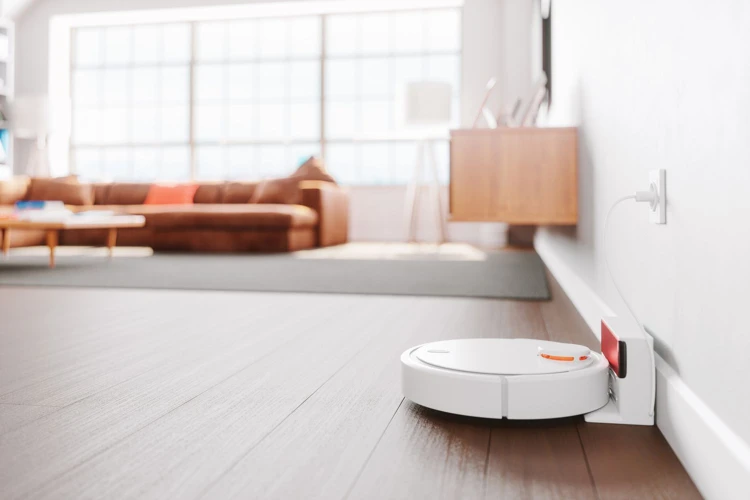
In today’s fast-paced world, where the environmental crisis is worsening every day, reducing wastage production is crucial. When discussing smart vacuum cleaners, we cannot overlook their contribution to minimizing the amount of waste produced. Smart vacuum cleaners have a distinct advantage over the traditional vacuum cleaners, which comprises of disposable bags, filters, and parts. They aim to minimize the waste production, resulting in a more sustainable and eco-friendly solution. Let’s explore the distinctive features that make smart vacuum cleaners a better choice regarding wastage production.
Reusable Dustbins
Smart vacuum cleaners offer various environmental benefits compared to regular vacuum cleaners. One such benefit is the use of reusable dustbins.
Using a smart vacuum cleaner with a reusable dustbin helps reduce wastage production, as it eliminates the need for disposable dustbags. Instead, the dustbin can be easily emptied, washed and reused multiple times, making it an eco-friendly alternative.
The use of a reusable dustbin can also save you money in the long run, as you won’t need to regularly purchase disposable dustbags which can be costly.
Reusable dustbins also contribute to better waste management as it helps in reducing the accumulation of plastic bags and other waste materials.
In addition to providing an eco-friendly alternative to disposable dustbags, smart vacuum cleaners with reusable dustbins also offer various functionalities that make cleaning easier and more efficient. These functionalities include features such as automatic emptying and advanced sensors that enable the vacuum to detect when the dustbin is full and automatically empty itself before it resumes cleaning.
The use of reusable dustbins in smart vacuum cleaners is a testament to the manufacturer’s commitment to creating sustainable and eco-friendly products. By opting for a smart vacuum cleaner with a reusable dustbin, you are contributing to a cleaner and more sustainable environment.
Minimal Disposable Parts
One of the most significant environmental benefits of using a smart vacuum cleaner is its minimal disposable parts. Unlike traditional vacuum cleaners that have replaceable filters, bags, and belts, smart vacuums are designed to minimize wastage production. With its reusable and washable dustbins, you don’t need to worry about throwing away bags after every cleaning session, contributing to reducing environmental pollution.
Additionally, smart vacuums feature high-quality parts, such as brushes and filters, that have a longer lifespan than traditional vacuum cleaners. As a result, you will not have to replace these parts frequently, thereby reducing the need for disposables, which ultimately saves you money.
Smart vacuum cleaners come with onboard diagnostic tools that help you determine the condition of your cleaning device. It tells you when you need to replace a component, such as a brush or a filter, by sending an alert to your smartphone app. You can make informed decisions about what needs to be disposed of, and with the purchase of only necessary parts, you are eliminating unnecessary waste.
To sum up, smart vacuum cleaners have revolutionized the way we clean our homes by offering eco-friendly cleaning solutions, reducing disposable waste production, and saving money in the long term. These machines are equipped with reusable parts that help the environment while maintaining high cleaning efficiency, which is a win-win for everyone.
Environmental Impact Comparison with Regular Vacuum Cleaners
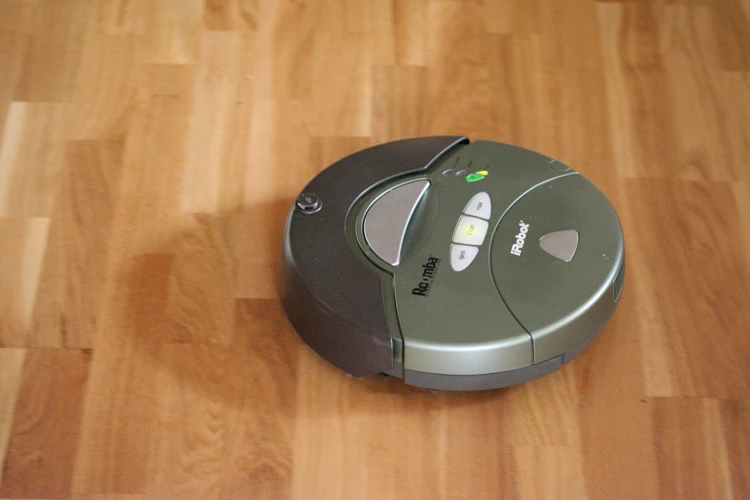
When comparing smart vacuum cleaners to regular vacuum cleaners, the environmental impact is significant. Regular vacuum cleaners consume a large amount of energy and produce more noise pollution than smart vacuum cleaners. These conventional vacuum cleaners also require disposable bags, filters, and other parts that ultimately end up in landfills.
In contrast, smart vacuum cleaners have a more sustainable impact on the environment. They have more advanced features like automatic charging and efficient cleaning, which results in reduced energy consumption. Unlike regular vacuum cleaners, smart vacuum cleaners also do not produce as much noise pollution, making them a more eco-friendly option.
Smart vacuum cleaners are also equipped with HEPA filtration systems, which eliminate allergens and dust particles from the environment. As a result, they improve the air quality, reducing the chances of respiratory problems. Smart vacuum cleaners have reusable dustbins, which significantly decrease the production of waste. They also minimize the use of disposable parts, which is another factor that contributes to a cleaner environment.
Smart vacuum cleaners can make a positive impact on the environment due to their reduced energy consumption, lower noise pollution, HEPA filtration capabilities, reusable dustbins, and minimal need for disposable parts. In comparison, regular vacuum cleaners consume more energy, create more noise pollution, and generate a significant amount of waste, which can harm the environment. By using smart vacuum cleaners, you can maintain cleanliness in your home while also being environmentally responsible.
Smart Vacuum Cleaners – Safe and Sustainable
Smart vacuum cleaners have proven to be a safe and sustainable option for the environment. They are designed with advanced features and technologies that prioritize the safety of its users while reducing its carbon footprint. One of the most notable features of smart vacuum cleaners is their ability to communicate with other smart home devices, making them highly efficient in energy consumption.
Additionally, smart vacuum cleaners come with HEPA filtration systems that help eliminate dust and allergens from the air, prioritizing breathable air quality. The reusable dustbins and minimal disposable parts also make them more sustainable than traditional vacuum cleaners. These features reduce the carbon footprint left by waste products as well as the amount of energy required to produce disposable parts.
When compared to traditional vacuum cleaners, smart vacuum cleaners clearly emerge as the more environmentally friendly option. Traditional vacuum cleaners require constant disposal of disposable parts such as filters, dust bags, and broken parts. This creates a significant amount of waste that has a detrimental effect on the environment. The energy consumption of traditional vacuum cleaners is much higher than smart vacuum cleaners, which can lead to high energy bills and contribute to climate change.
Smart vacuum cleaners are also designed to operate quietly, which reduces noise pollution in homes. This ensures that users can clean their homes without interfering with their neighbors’ peace and quiet.
Smart vacuum cleaners are a safe and sustainable choice for anyone looking to reduce their carbon footprint while maintaining a clean home. With their environmentally-friendly features, efficient energy consumption, and ability to maintain clean and breathable air quality, it is clear that smart vacuum cleaners prioritize the safety of its users and the environment.
Conclusion
In conclusion, it’s evident that using smart vacuum cleaners is not only a convenience but also an environmentally friendly decision. The reduction of energy consumption, noise pollution, and wastage production are all vital factors to consider when making eco-conscious choices. Smart vacuum cleaners are the perfect solution to these problems as they are efficient, quiet, and produce minimal waste.
Additionally, the HEPA filtration system is another significant benefit of using a smart vacuum cleaner. The ability to eliminate dust and allergens from the air, thus creating a breathable environment, cannot be overlooked. With a smart vacuum, you don’t have to worry about breathing contaminated air or triggering allergy symptoms.
Moreover, compared to regular vacuum cleaners, a smart vacuum cleaner has a significantly lower environmental impact. They produce fewer emissions, consume less energy, and are designed to last longer. Therefore, making the switch to a smart vacuum cleaner is not only cost-saving but environmentally responsible as well.
In short, while the benefits of smart vacuum cleaners may seem minimal, they significantly impact the environment, making a long-lasting difference. By opting for a sustainable and eco-friendly smart vacuum cleaner, you contribute to improving the air quality in your home or office, reducing your carbon footprint, and maintaining a healthy living environment. It’s time to replace your old noisy and energy-consuming vacuum cleaner with a smarter, safer, and sustainable option. The planet earth and your lungs will thank you!
Frequently Asked Questions
1. How do smart vacuum cleaners reduce energy consumption?
Smart vacuum cleaners use efficient motors and sensors to clean a space in the most energy-saving way possible. They also have advanced algorithms that reduce battery usage and preserve energy.
2. Can a smart vacuum cleaner clean a large space?
Yes, smart vacuum cleaners are designed to clean all sizes of spaces. They can clean a large space just as efficiently as a small one.
3. What is HEPA filtration?
HEPA stands for High-Efficiency Particulate Air. This type of filtration system captures 99.97% of airborne particles and ensures that the air is free of allergens and pollutants.
4. Can a smart vacuum cleaner reduce noise pollution?
Yes, compared to traditional vacuum cleaners, smart vacuum cleaners produce less noise. They use advanced motors and are designed to produce sound lower than 70 decibels.
5. How often should I clean the dustbin of a smart vacuum cleaner?
You should clean the dustbin of your smart vacuum cleaner after every use. This prevents dust and debris from building up, clogging the filter, and reducing the suction power.
6. Do smart vacuum cleaners come with replaceable parts?
Yes, some parts of smart vacuum cleaners can be replaced if broken or damaged. However, since they are made to last longer, the need for replacements is less frequent compared to traditional vacuum cleaners.
7. Can a smart vacuum cleaner be controlled remotely?
Yes, most smart vacuum cleaners can be controlled remotely via a mobile application. You can also schedule the cleaning time and save your cleaning preferences.
8. Are smart vacuum cleaners safe to use around pets and children?
Yes, smart vacuum cleaners are suitable for use around pets and children. They have sensors that detect obstacles and prevent collisions, making them less likely to cause injury or damage to things around them.
9. How much do smart vacuum cleaners cost?
The cost of a smart vacuum cleaner varies based on its features and brand. Typically, they range from $200 to $800, with some high-end options costing up to $1,500.
10. How do smart vacuum cleaners compare to traditional vacuum cleaners in terms of environmental impact?
Smart vacuum cleaners have a lower environmental impact compared to traditional vacuum cleaners because of their energy efficiency and the production of less waste. They also have advanced filtration systems that ensure breathable air quality and reduce pollution.

